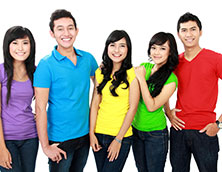Common Painkillers Boost Risk of Repeat Heart Attack
These medications belong to a family of drugs known as nonsteroidal anti-inflammatory drugs (NSAIDs). They are considered pretty safe when used occasionally in low to moderate doses to relieve pain, with some exceptions. People with kidney disease and those with a history of peptic ulcer or upper gastrointestinal bleeding should avoid using NSAIDs. People with heart failure, advanced liver disease or high blood pressure should check with their doctors before taking NSAIDs. The new study, published online in the journal Circulation, suggests adding heart attack survivors to the list.
What they found
A team of Danish researchers followed the health of almost 100,000 people who had a first heart attack for five years. During this time, almost half of them were prescribed an NSAID at least once.
After one year, those who used an NSAID were about 60% more likely to have died during each year of the study than those who didn’t use an NSAID. Keep in mind that this is a relative increase, comparing the two groups. In absolute terms, during the first year there were 20 deaths per 100 people among NSAID users compared to 12 deaths per 100 people among nonusers. during year five, there were 9.5 deaths per 100 NSAID users and 6 deaths per 100 non-NSAID users.
People who took any NSAID other than aspirin also had a higher risk of having a second heart attack.
Of all the NSAIDs, diclofenac (Cataflam, Voltaren, generic) was linked to the largest increases in death or heart attack rates, while naproxen (Naprosyn, Aleve, generic) appeared to carry the lowest risk. The lower risk with naproxen confirms what has been seen in older studies.
What’s the connection?
No study so far—including this one—has been able to answer exactly why NSAIDs cause problems for heart attack survivors and other people with compromised cardiovascular function. One theory is that people who take an NSAID stop taking aspirin, a drug with proven benefits in this group. Except for people with aspirin allergies, all heart attack survivors and others with cardiovascular disease should take low-dose aspirin.
Another possible reason is that NSAIDs can block aspirin’s protective effects. Aspirin makes platelets less sticky and less likely to clump and form blood clots. Such clots in narrowed arteries are the major cause of heart attacks.
What Changes Can I Make Now?
If you have heart disease and need pain relief, try acetaminophen first. That’s what I tell my patients, and is what the American Heart Association recommends. Generic versions are available and work just as well as brand-name Tylenol. Keep the maximum dose to 3,250 milligrams per day. Doses higher than this increase the risk of liver damage.
Note that each regular-strength acetaminophen tablet or capsule contains 325 milligrams. Extra strength means 500 milligrams.
If you do need an NSAID after a heart attack, it’s best to check with your doctor first. He or she will likely be okay with you using an occasional NSAID for a headache or for other pain that is likely to last for a short time.
Of the NSAIDs, naproxen is probably the best choice for your heart. But whatever you and your doctor decide is best for you, use the lowest dose possible for the shortest period of time.
If you do need to take an NSAID long term, say for arthritis, take your aspirin first each day. Wait an hour or so before taking the NSAID. This is especially true for ibuprofen. Doing this gives aspirin enough time to exert its anti-platelet effect and lessens the chance that an NSAID will block it.
FAMILY CHIROPRACTIC CENTER OF SANTA FE
Learn more about our practice and what we can do for you.
Family Chiropractic Center of Santa Fe is committed to your good health and well-being.
Family Chiropractic Center of Santa Fe is a family practice, providing safe and effective treatment for everyone from newborns to centenarians.
Read their testimonials.







